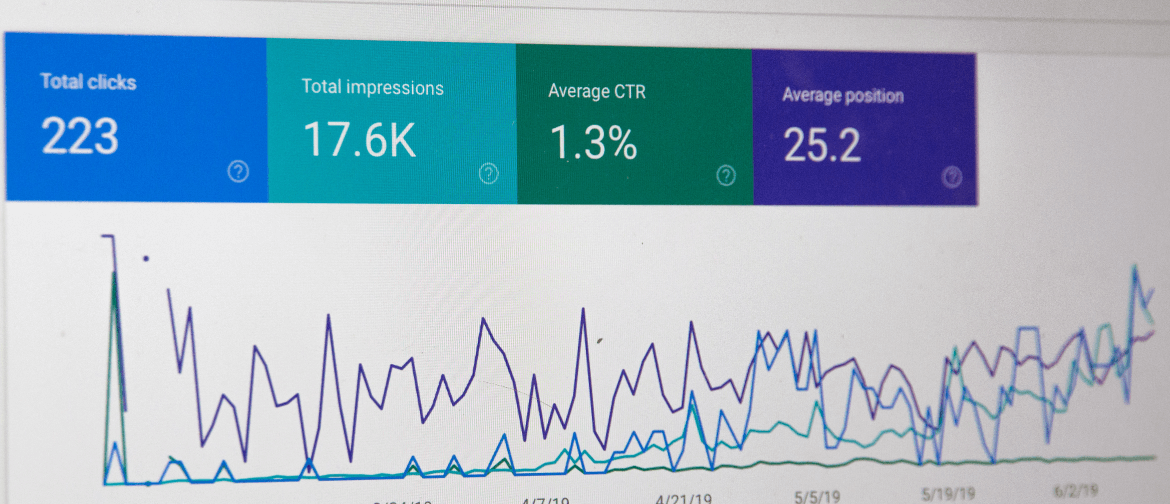GA4 update is coming - will your business be left behind?
Alastair Manning • May 22, 2023
The world of digital analytics is evolving rapidly. One of the most significant updates in recent times is the release of Google Analytics 4 (GA4). The updated Google Analytics comes with improved features and abilities that give a better understanding of how users behave. It helps businesses make smarter decisions based on this information.
The Evolution of Google Analytics
Google Analytics has been a popular tool for businesses to track website performance and user behavior. However, the online world has changed rapidly with the rise of mobile apps, social media, and other platforms.
GA4 is the latest version of Google Analytics. It is different from the previous version, Universal Analytics, because it uses a more advanced framework. GA4 uses technologies like machine learning and artificial intelligence to understand user behavior on different platforms, such as websites and mobile apps.
Why Should You Care about GA4?
As a business owner or marketer, you might wonder, "Why should I invest time and resources in transitioning to GA4?" There are a couple of reasons. If you currently use Google Analytics's Universal Analytics and don't transition to GA4. On July 1st you will stop receiving new reporting data. The second reason is that GA4 offers a more comprehensive approach to tracking user interactions and provides a unified view of customer journeys across devices, websites, and apps. By understanding how users engage with your brand at every touchpoint, you can tailor your marketing strategies to optimise conversions and drive customer loyalty.
Benefits of GA4 for Your Business
The GA4 update offers an array of benefits that can help your business's success. Some key advantages are:
- Enhanced User-Centric Tracking
GA4 focuses on the user journey, allowing you to track interactions and events across devices and platforms. This user-centric approach enables you to gain insights into how users engage with your brand at every touchpoint, facilitating personalised marketing strategies and improved user experiences. - Smarter Insights with AI
With the incorporation of machine learning and artificial intelligence, GA4 provides smarter insights into user behavior. It can help you identify trends, predict customer preferences, and optimise your marketing efforts accordingly. - Deeper Integration with Google Ads
By integrating GA4 with Google Ads, you can seamlessly analyse your campaigns' performance and identify opportunities for optimisation. The enhanced data-sharing capabilities provide a more cohesive understanding of your advertising efforts, empowering you to make data-driven decisions to maximize ROI. - Streamlined Event Tracking
GA4 simplifies event tracking by introducing an event-driven data model. This model allows you to track specific actions taken by users, such as button clicks, video views, and downloads, with greater flexibility. By accurately capturing these events, you can gain valuable insights into user behavior patterns and optimise your marketing initiatives. - Privacy-Centric Approach
In response to evolving privacy regulations and user preferences, GA4 focuses on data privacy and consent. It ensures compliance with regulations like the General Data Protection Regulation (GDPR) and offers more transparency and control over data collection. By adopting GA4, you can build trust with your audience and maintain ethical data practices. - Cross-Platform Analysis
With GA4, you can track user interactions across platforms, including websites, mobile apps, and even offline events. This comprehensive cross-platform analysis provides a unified view of customer behavior, enabling you to identify touchpoints that drive conversions and refine your marketing strategies accordingly.
GA4 Implementation
If you're not already using GA4, now is the time to start. It's the future of Google Analytics. Here are a few things you can do to get started with GA4:
- Create a GA4 property.
- Install the GA4 tracking code on your website or app.
- Start collecting data.
- Explore the GA4 reports.
- Migrate your UA data to GA4.
If you need help getting started with GA4
Yorb can can help. Additionally Google has a
comprehensive guide to GA4 available.
Recent Posts




